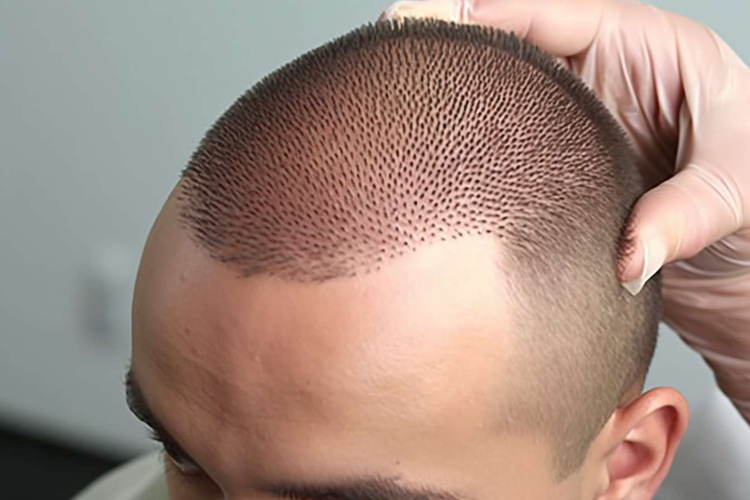“Doctors Reveal What Really Works for Hair Loss”
Hair loss affects millions of people worldwide, causing distress and impacting self-esteem. As the search for effective solutions continues, doctors and hair restoration experts have made significant strides in understanding and treating hair loss. This article delves into the most effective treatments for hair loss, as revealed by medical professionals, with a focus on hair transplantation and other proven methods.

What causes hair loss, and who is most affected?
Hair loss can occur due to various factors, including genetics, hormonal changes, medical conditions, and aging. While it’s commonly associated with men, women also experience hair loss, especially after menopause. Androgenetic alopecia, or pattern baldness, is the most common type, affecting up to 50% of men by age 50 and about 25% of women by age 65. Other causes include stress, nutritional deficiencies, and certain medications.
How do hair transplants work, and are they effective?
Hair transplantation is a surgical procedure that involves moving hair follicles from a donor area (typically the back of the head) to areas with thinning or no hair. The two main techniques are Follicular Unit Transplantation (FUT) and Follicular Unit Extraction (FUE). Both methods have shown high success rates, with many patients experiencing significant hair regrowth within 6-12 months post-surgery. The effectiveness of hair transplants depends on factors such as the surgeon’s skill, the patient’s hair type, and the extent of hair loss.
What are the best non-surgical hair restoration options?
While hair transplants offer a permanent solution, non-surgical hair restoration methods can also be effective. These include:
-
Medications: FDA-approved drugs like minoxidil and finasteride have shown promising results in slowing hair loss and promoting regrowth.
-
Platelet-Rich Plasma (PRP) therapy: This treatment uses the patient’s own blood plasma to stimulate hair growth.
-
Low-Level Laser Therapy (LLLT): This non-invasive treatment uses light energy to stimulate hair follicles.
-
Scalp Micropigmentation: A cosmetic procedure that creates the illusion of a fuller head of hair by tattooing pigment into the scalp.
Are there any natural remedies or lifestyle changes that can help?
In the United Kingdom, doctors emphasize the importance of a holistic approach to hair health. This includes maintaining a balanced diet rich in proteins, vitamins (especially B-complex and D), and minerals like iron and zinc. Regular scalp massages can improve blood circulation to the hair follicles. Stress management techniques such as meditation and yoga may also help, as chronic stress can contribute to hair loss. Additionally, avoiding harsh hair treatments and excessive heat styling can prevent further damage to existing hair.
How do I choose the right hair restoration method for me?
Selecting the appropriate hair restoration method depends on several factors:
-
The extent and pattern of hair loss
-
Your overall health and medical history
-
Your budget and time constraints
-
Your expectations and desired outcomes
Consulting with a qualified trichologist or hair restoration specialist is crucial. They can assess your individual case and recommend the most suitable treatment plan, which may involve a combination of surgical and non-surgical approaches.
What are the costs and options for hair transplantation in Turkey?
Turkey has gained a reputation as a leading destination for hair transplantation, offering high-quality procedures at competitive prices. Many clinics in Turkey provide state-of-the-art facilities and experienced surgeons.
| Clinic Name | Procedure Type | Estimated Cost (GBP) | Key Features |
|---|---|---|---|
| Este Milano | FUE | 1,500 - 3,000 | All-inclusive packages, multilingual staff |
| Dr. Serkan Aygin Clinic | DHI and FUE | 1,800 - 3,500 | 25+ years experience, lifetime warranty |
| Vera Clinic | Sapphire FUE | 1,600 - 3,200 | Advanced techniques, comprehensive aftercare |
| AEK Hair Clinic | FUE and DHI | 1,700 - 3,300 | Customized treatment plans, modern facilities |
Prices, rates, or cost estimates mentioned in this article are based on the latest available information but may change over time. Independent research is advised before making financial decisions.
When considering hair transplantation in Turkey, it’s essential to research the clinic thoroughly, read patient reviews, and ensure they adhere to international safety standards. While the cost savings can be significant compared to UK prices, factor in travel expenses and potential follow-up care when budgeting for your procedure.
In conclusion, hair loss treatment has come a long way, with both surgical and non-surgical options showing promising results. Hair transplantation remains one of the most effective long-term solutions, especially for those with significant hair loss. However, a combination of treatments, including medications, lifestyle changes, and non-invasive therapies, often yields the best results. Always consult with a qualified professional to determine the most suitable approach for your individual needs and circumstances.
This article is for informational purposes only and should not be considered medical advice. Please consult a qualified healthcare professional for personalized guidance and treatment.




